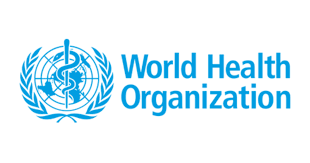The World Health Organisation (WHO) has commended the Federal Government’s renewed commitment to Universal Health Coverage (UHC), sustainable health financing and health workforce development.
It described them as critical to strengthening Nigeria’s health system.
Dr Pavel Usu, the WHO Representative in Nigeria, gave the commendation on Thursday at the opening of the 66th National Council on Health (NCH) in Calabar.
The event had the theme, “My Health, My Right: Accelerating Universal Health Coverage through Equity, Resilience and Innovation”.
Usu said the theme was timely, as the council remained the country’s highest policy-making platform for shaping health priorities, improving governance and driving reforms.
He noted that the United Nations Sustainable Development Cooperation Framework also prioritised resilient and inclusive systems, aligning fully with the council’s focus on health as a fundamental human right.
The WHO representative praised the leadership of the country for championing reforms aimed at expanding access to quality services.
According to him, the organisation strongly supports the proposal to increase the Basic Health Care Provision Fund from one per cent to two per cent of the Consolidated Revenue Fund.
He added that improved domestic financing was key to achieving universal health coverage.
He also welcomed the recently-adopted national policy on health workforce migration and expanded training, describing them as landmark steps toward strengthening frontline capacity.
He, however, said Nigeria must address persistent challenges identified in the recently-concluded Joint Annual Review.
He said that resolutions required not only endorsement but effective implementation at federal, state and local government levels.
He reaffirmed WHO’s commitment to providing technical support, building capacity and strengthening monitoring frameworks to help to track progress and translate policies into measurable health outcomes.
Dr Lordfred Achu, Technical Specialist for Reproductive and Maternal Health, United Nations Population Fund (UNFPA), reaffirmed the agency’s commitment to supporting Nigeria’s efforts to reduce maternal mortality and strengthen reproductive health services.
Achu commended the Cross River State Government and the Federal Ministry of Health and Social Welfare for successfully hosting the event.
He applauded progress recorded in the fight against maternal mortality but stressed that sustained efforts would be required to ensure that no woman would die while giving birth.
“While a lot has been achieved, more still needs to be done and the efforts must be sustained,” he said.
He reiterated UNFPA’s commitment to supporting ongoing reforms championed by the ministry.
He added that UNFPA remained dedicated to working with federal and state governments to strengthen policies, expand access to quality reproductive healthcare services, and improve outcomes for women and girls.
On behalf of the Development Partners Group, Dr Fatima Zamani, congratulated the Cross River Government and the Federal Ministry of Health for convening the meeting.
She highlighted significant achievements in 2025, including improvements in maternal and child health, health insurance initiatives, workforce development, and climate and health adaptations.
Zamani reiterated the partners’ commitment to aligning support with government priorities, mobilising resources for impactful interventions, and strengthening data-driven decision-making.
Representing the civil society, Dr Garfa Alawode, Co-convener of the UHC2023 Forum, emphasised the ethical and political consensus that health is a human right.
Alawode noted that the civil society would work to complement government efforts, particularly in health financing, to ensure uniform progress across states.
He urged continued collaboration to accelerate Nigeria’s journey toward UHC.
The News Agency of Nigeria (NAN) reports that the 66th NCH brought together commissioners of health, development partners, members of the diplomatic communit and others to review and align strategies for advancing universal health coverage in Nigeria.


